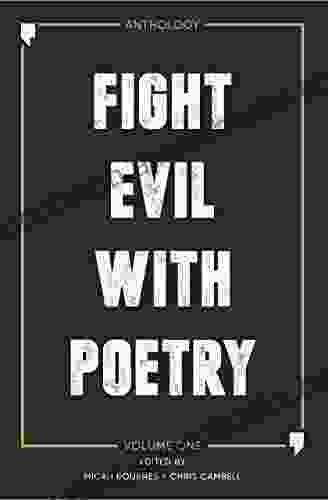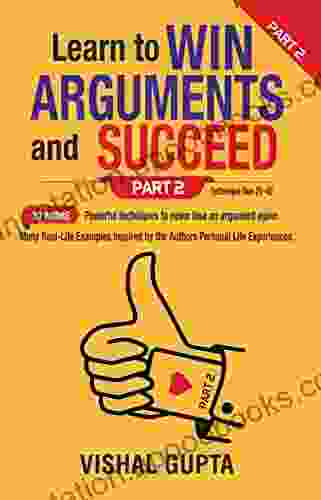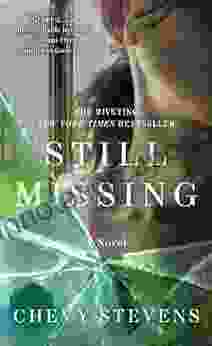Behavioral Economics and Nuclear Weapons: A New Frontier in Security and International Studies

The specter of nuclear weapons has cast a long shadow over international security for decades. As the world grapples with the complexities of nuclear proliferation and the potential for catastrophic consequences, it becomes imperative to understand the human factors that shape decision-making in this perilous domain. Behavioral economics, a burgeoning field that explores the psychological and cognitive biases that influence economic decision-making, offers a unique lens through which to examine nuclear weapons studies.
Bias and the Fog of War:
In the high-stakes arena of nuclear weapons, biases and cognitive shortcuts can have profound implications. For instance, the "availability bias" refers to the tendency to overestimate the likelihood of events that are easily recalled or vivid in our minds. This bias can lead policymakers to overreact to recent nuclear incidents or to underestimate the risks of future ones.
4.7 out of 5
| Language | : | English |
| File size | : | 2721 KB |
| Text-to-Speech | : | Enabled |
| Screen Reader | : | Supported |
| Enhanced typesetting | : | Enabled |
| Word Wise | : | Enabled |
| Print length | : | 232 pages |
Another cognitive bias, known as "confirmation bias," describes the inclination to seek information that confirms our existing beliefs, while ignoring evidence that contradicts them. In nuclear weapons policy, confirmation bias can prevent policymakers from considering diverse perspectives or alternative courses of action, potentially leading to flawed decision-making.
Prospect Theory: Risk Assessment in the Nuclear Age
Prospect theory, a cornerstone of behavioral economics, challenges the traditional view of risk aversion. It posits that individuals are risk-averse in the domain of gains but risk-seeking in the domain of losses. This implies that policymakers may be more willing to take risks when facing potential losses, such as the threat of nuclear retaliation, even if those risks are substantial.
Prospect theory also highlights the importance of framing in decision-making. The way in which options are presented can significantly influence the choices people make. In nuclear weapons policy, the framing of disarmament initiatives or nuclear deterrence strategies can impact public opinion and policymakers' willingness to engage in negotiations or take military action.
Heuristics and Bounded Rationality
Humans possess limited cognitive capacity, which often leads us to rely on mental shortcuts or heuristics to make decisions. In the context of nuclear weapons, heuristics can lead to errors in judgment, such as the "nuclear brinkmanship" heuristic, which suggests that nuclear threats can be used to intimidate adversaries into backing down, despite the potential for escalation.
Understanding the role of bounded rationality in nuclear weapons policy is critical for developing more effective strategies and mitigating the risks of accidental or deliberate nuclear conflict.
Cognitive Biases and Nuclear Deterrence
Nuclear deterrence is a cornerstone of international security, but it relies heavily on the assumption that actors will behave rationally and avoid using nuclear weapons. Behavioral economics challenges this assumption by highlighting the role of cognitive biases in decision-making. For instance, the "optimism bias" refers to the tendency to overestimate the likelihood of positive outcomes and underestimate the likelihood of negative ones. This bias can lead policymakers to believe that nuclear war is less likely than it actually is, increasing the risks of miscalculation.
Moreover, the "illusion of control" bias describes the tendency to overestimate one's ability to control events, even in situations where control is limited. This bias can lead policymakers to believe that they can manage nuclear crises effectively, potentially leading to reckless decision-making.
Behavioral Economics in Practice: Implications for Policy
The insights from behavioral economics offer valuable guidance for policymakers seeking to enhance nuclear security and reduce the risks of nuclear conflict. By understanding the psychological factors that influence decision-making, policymakers can design policies that mitigate cognitive biases and promote more rational and risk-averse behavior.
Behavioral economics can also inform public diplomacy efforts, helping governments communicate nuclear risks and policies effectively to the public. By tailoring messages to address cognitive biases and emotional responses, governments can foster greater understanding and support for nuclear disarmament initiatives and non-proliferation measures.
The convergence of behavioral economics and nuclear weapons studies represents a significant advancement in our understanding of the human factors that shape decision-making in this critical domain. By incorporating behavioral insights into security and international relations analysis, policymakers can develop more effective strategies, reduce the risks of nuclear conflict, and promote a safer and more secure world.
As the field of behavioral economics continues to evolve, so too will its applications in nuclear weapons studies. Future research promises to shed further light on the psychological factors that influence decision-making at the highest levels of international security, paving the way for more informed policies and a more peaceful world.
4.7 out of 5
| Language | : | English |
| File size | : | 2721 KB |
| Text-to-Speech | : | Enabled |
| Screen Reader | : | Supported |
| Enhanced typesetting | : | Enabled |
| Word Wise | : | Enabled |
| Print length | : | 232 pages |
Do you want to contribute by writing guest posts on this blog?
Please contact us and send us a resume of previous articles that you have written.
 Book
Book Novel
Novel Page
Page Chapter
Chapter Text
Text Story
Story Genre
Genre Reader
Reader Library
Library Paperback
Paperback E-book
E-book Magazine
Magazine Newspaper
Newspaper Paragraph
Paragraph Sentence
Sentence Bookmark
Bookmark Shelf
Shelf Glossary
Glossary Bibliography
Bibliography Foreword
Foreword Preface
Preface Synopsis
Synopsis Annotation
Annotation Footnote
Footnote Manuscript
Manuscript Scroll
Scroll Codex
Codex Tome
Tome Bestseller
Bestseller Classics
Classics Library card
Library card Narrative
Narrative Biography
Biography Autobiography
Autobiography Memoir
Memoir Reference
Reference Encyclopedia
Encyclopedia Cindy Golden
Cindy Golden Cindy Rollins
Cindy Rollins Nigel Farage
Nigel Farage Christin Lovell
Christin Lovell Christen Haden
Christen Haden Christopher F Small
Christopher F Small Claire Gelder
Claire Gelder Robert A Francis
Robert A Francis Chris Seiter
Chris Seiter Chuck D
Chuck D Christopher Marlowe
Christopher Marlowe Gerry Duggan
Gerry Duggan V M Sang
V M Sang Christopher Buehlman
Christopher Buehlman Chris Niles
Chris Niles Henry Abramson
Henry Abramson Ray Raphael
Ray Raphael Christopher Caldwell
Christopher Caldwell William Weber
William Weber Claire North
Claire North
Light bulbAdvertise smarter! Our strategic ad space ensures maximum exposure. Reserve your spot today!

 Fabian MitchellFight Evil with Poetry: A Lyrical Journey to Defy Oppression, Spark Change,...
Fabian MitchellFight Evil with Poetry: A Lyrical Journey to Defy Oppression, Spark Change,...
 Tennessee WilliamsUnraveling the Mysteries: Understanding Your Partner with "How Men and Women...
Tennessee WilliamsUnraveling the Mysteries: Understanding Your Partner with "How Men and Women...
 Derek BellUnveil the Essence of Chicago Blues: A Visual Journey through "Chicago Blues:...
Derek BellUnveil the Essence of Chicago Blues: A Visual Journey through "Chicago Blues:... Haruki MurakamiFollow ·2.3k
Haruki MurakamiFollow ·2.3k Gage HayesFollow ·18.8k
Gage HayesFollow ·18.8k Eric NelsonFollow ·2.4k
Eric NelsonFollow ·2.4k Brayden ReedFollow ·16.1k
Brayden ReedFollow ·16.1k José MartíFollow ·2.6k
José MartíFollow ·2.6k Shaun NelsonFollow ·12.9k
Shaun NelsonFollow ·12.9k Ralph Waldo EmersonFollow ·6.8k
Ralph Waldo EmersonFollow ·6.8k Douglas FosterFollow ·18.6k
Douglas FosterFollow ·18.6k

 Kevin Turner
Kevin TurnerDive into the Enchanting World of "Crazy Like Fox": A...
Prepare yourself for a literary adventure...

 Ralph Waldo Emerson
Ralph Waldo EmersonUnlock the Elegance of Daffodil Lace: An Immersive Guide...
: A Tapestry of Delicate...

 Gerald Parker
Gerald ParkerNever Lose An Argument Again: 20 Powerful Techniques From...
Are you tired of losing...

 Xavier Bell
Xavier BellSeven Animal Insertions Filet Crochet Pattern: Embark on...
Welcome to the captivating...

 Eugene Powell
Eugene PowellMagomago in TDS Magomago 12: An Unforgettable Adventure...
Step into the Enchanting World of...

 Marvin Hayes
Marvin HayesSoft Felting Needle Holder Excellence In Reborn Artistry
Unveiling the Secrets of the...
4.7 out of 5
| Language | : | English |
| File size | : | 2721 KB |
| Text-to-Speech | : | Enabled |
| Screen Reader | : | Supported |
| Enhanced typesetting | : | Enabled |
| Word Wise | : | Enabled |
| Print length | : | 232 pages |






